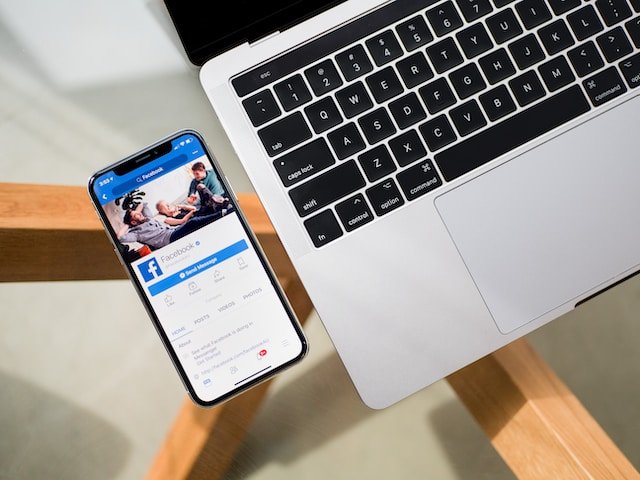How To Pay On Marketplace
It is possible to pay for products sold through Facebook Marketplace using a credit card, debit card as well as a PayPal account. To make this happen, just select “Buy Now” on the product you wish to purchase and follow the steps. Facebook will secure make your payment while the retailer will also be informed that you’ve made payment.
How Do We Make Money On Marketplace?

The heart of each transaction in the marketplace is the continuous interaction between sellers and buyers. The process generally begins with a buyer looking for an item or service that will meet their requirements. Keywords play a crucial role in connecting potential buyers to relevant offerings. As a seller, optimizing product descriptions using accurate and relevant keywords is essential to ensure that your products can be found.
1. The Role of Payment Gateways
When a buyer has decided on the product they want to purchase, the transaction process starts. Payment gateways act as the channels for transferring money securely from the buyer to the seller.
They ensure that financial data sensitive to the buyer is secured and kept private, protecting both parties from possible data breaches or fraud. The most popular payment gateways are PayPal, Stripe, and Square, all of which offer seamless integration as well as a wide range of payment choices.
2. Escrow Services: Building Trust in Transactions
When it comes to high-value transactions or ones that require services, the notion of escrow can be applied. Escrow services function as intermediaries, storing the buyer’s money until agreed-upon conditions are fulfilled. This adds another layer of security to the deal, assuring each party that the interests of both are safeguarded. As a seller, knowing the complexities of escrow services is essential for dealing with larger transactions.
3. Reviews and Ratings: The Currency of Trust
In the world of digital, trust is a crucial currency. Ratings and reviews left by former buyers add significantly to the credibility and reputation. Positive reviews can boost sales and increase the ranking of sellers in the search engine’s algorithms. Inviting buyers to give honest feedback and then promptly address any issues will be a huge help in establishing an online reputation that is positive.
4. Handling Returns and Refunds
The journey to financial success in a marketplace does not necessarily end when you’ve completed a transaction. Buyers could experience issues with the product they’ve bought, resulting in returns or requests for refunds. Sellers should be able to clearly define a policy in place to deal with situations like this. Transparency in communicating these policies will not only guarantee satisfaction for customers but also assists in maintaining a consistent money flow in the marketplace ecosystem.
5. Currency Conversion and International Trade
In a worldwide marketplace, transactions can cross borders. International trade and currency conversion can be a problem when buyers and sellers are operating in different areas. Marketplaces and payment gateways typically provide solutions for currency conversion, making it possible to conduct seamless transactions between two parties irrespective of the location they are located in.
6. Seller Payouts and Marketplace Fees
For sellers, knowing the process of payout and its fees is essential. Different marketplaces offer different fees, such as transaction fees, listing fees, and subscription costs with premium functions. It is essential for sellers to consider these costs when pricing their products in order to keep their prices competitive while ensuring profitability.
7. Tax Implications for Online Transactions
The online marketplace does not exempt you from tax obligations. Sellers are accountable for complying with tax laws within their local jurisdictions. This may differ based on variables such as location, sales volumes, and product type. Becoming aware of tax laws and seeking advice from a professional in the event of need is vital to avoid legal issues later on.
8. Innovations in Payment Technology
As technology develops as technology improves, so does the nature of online payment. Digital wallets, cryptocurrency, as well as Decentralized Finance (DeFi), are creating new opportunities for money exchange. Being aware of these developments and assessing their viability in the market you are operating in will help you gain an advantage and provide opportunities to grow.
How To Pay Safely On Facebook Marketplace?
Make sure you use a secure method of payment. Facebook Marketplace recommends using a safe person-to-person (P2P) option for payment like PayPal, Venmo, or Zelle. These apps provide buyer protection as well as fraud prevention options.
- Do not pay in cash: Cash isn’t the most safe method to purchase items through Facebook Marketplace. If you choose to pay cash, ensure that you make contact with the vendor in a public area and then count the cash before them.
- Visit the vendor in person: This is the best method to be sure that you’re receiving the item you’re paying for. If you are meeting with the seller, select a location that is accessible to the public, and bring a family or friend member along with you.
- Examine the item prior to making a payment: Be sure it is in the same condition it was advertised. If you aren’t satisfied with the product you purchased, don’t pay for it.
- Look up the seller’s profile: Before making a purchase, go through the profile of the seller. Review other buyers’ reviews, and be sure there is a positive reputation.
- Be cautious of offers that appear too appealing to be true: If a product is priced substantially below its market value, it’s likely to be an enigma.
- Any suspicious activity should be reported to Facebook: If you suspect you have been scammed, notify Facebook immediately.
Here are a few additional suggestions that aren’t directly connected to payments. However, they are nevertheless essential to remember while you use Facebook Marketplace
- Do not divulge your personal details to strangers. This includes your telephone number and address as well as your email address.
- Be aware of the information you share on your Facebook profile. Scammers could utilize this information to snare you.
- Trust your gut. If something feels strange, it’s likely to be. Do not be afraid to walk off a deal when you are uneasy.
How To Avoid Scams When Paying On Facebook Marketplace?

Use only official payment methods. Facebook provides two payment options for Marketplace. Facebook Checkout and PayPal. They offer buyers protection, which means you can claim your money back in the event of a problem. Do not use other payment options like Venmo, Zelle, or Cash App, as these don’t offer protection for buyers.
- Visit the vendor in person: This is the most effective way to be sure that you’re getting the value you are paying for. If you’re not able to meet in person, consider using the services of a courier that offers the ability to track and even insurance.
- Be attentive to the profile of the seller: You should look for a seller that has an excellent rating and a long history of reviews that are positive. Beware of sellers who have new profiles or ratings that are low.
- Be cautious of offers that appear too appealing to be true: If the cost of an item seems lower than you imagine, it’s most likely fraudulent.
- Do not pay for something before you get it: It’s a scam that is common. The seller will ask for your money only to disappear.
- Don’t share personal information: This includes your complete name as well as address and phone number. Scammers could make use of these details in order to seize your personal information or commit other crimes.
- Report suspicious activities to Facebook: If you suspect you’ve been a fraud, report the situation to Facebook. They may be able to help you claim the money back.
Below are some more hints that can aid you in avoiding fraud on the Facebook Marketplace
- Utilize credit cards: If you make use of credit cards to purchase something through Facebook Marketplace, you have greater protection than if you make use of a debit card or PayPal. The reason is that credit card firms provide chargeback insurance, which means you are able to dispute the charges if you don’t receive the product you purchased.
- Do your research: Before buying something from Facebook Marketplace, spend some time studying the item along with the person selling it. Check out the reviews for the item as well as the seller. Beware of red flags, like a seller with lots of negative reviews or a product which is sold for a lesser price than you’d think.
- Be wary: Sellers that are looking to communicate with you with you outside of Facebook. Scammers frequently try to shift the conversation onto another platform, like WhatsApp or text messages, to avoid being followed by Facebook. If a seller requests to speak with someone via a different platform than Facebook, it is recommended to refuse.
- Trust your gut: If something seems off about the transaction, it likely is. Do not be afraid to pull out of an offer if you are in doubt.
FAQ’s
What Payment Methods are Accepted on the Marketplace?
Online marketplaces usually accept various payment methods such as credit and debit cards (Visa, MasterCard, American Express), digital wallets (PayPal, Apple Pay, Google Pay), and sometimes even bank transfers. The accepted methods can vary, so it’s best to check the marketplace’s payment options.
How Do I Add a Payment Method to My Account?
To add a payment method, log in to your marketplace account, go to the payment settings, and select “Add Payment Method.” Then, enter your card details or connect your digital wallet account as per the provided instructions. Some marketplaces might require you to verify the payment method for security purposes.
Is My Payment Information Secure?
Reputable online marketplaces use encryption and security measures to protect your payment information. Look for “https” in the website’s URL and security icons (e.g., padlock) in the browser’s address bar. Additionally, make sure the marketplace has a privacy policy and terms of use to understand how your data is handled.
Can I Save Multiple Payment Methods?
Yes, most online marketplaces allow you to save multiple payment methods to your account. This is useful if you want to switch between different cards or digital wallets for different purchases.
Is One-Time Payment or Recurring Billing Available?
Many marketplaces support both one-time payments and recurring billing options. One-time payments are used for individual purchases, while recurring billing is used for subscription services. Make sure to review the terms before authorizing recurring payments.
How Do I Make a Purchase?
To make a purchase on the marketplace, add the desired items to your cart and proceed to checkout. You’ll be prompted to select a payment method and provide necessary details. Review your order summary and confirm the payment to complete the purchase. You might receive an email receipt for your records.

















